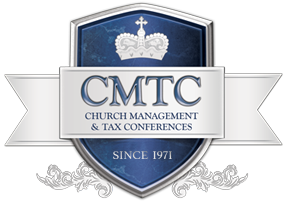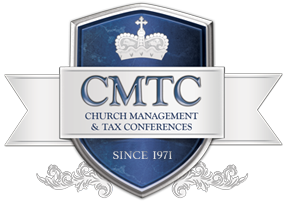What You Don’t Know Can Hurt You
He called the office distraught, needing Pastoral advice. He had attended a Church Management and Tax Conference and heard me speak about the necessity of properly structured by-laws and how each church must hold at least one Board Meeting per year. His cry to me was, “How do I structure and conduct a Board Meeting? They did not teach this in Bible College!”
Bible Colleges and Seminaries are designed to teach Pastors Theology, Eschatology, Sermon Preparation and Delivery, etc. They are not structured to teach future Pastors the “mechanics” of day-to-day Church operation and management.
Most seasoned Pastors have it figured out, but those new to the Pastorate, as yet, have no clue as to the daily requirements of administrative functions that transpire Monday through Friday. These young Pastors have zeal and passion to fulfill God’s call on their lives, but when hit with the “reality” of ministry, many leave ministry, or at the least, feel as if they have landed in something for which they did not bargain.
This is why at our Annual World Conference we open our International Congress of Churches and Ministers (ICCM) Annual Board Meeting to any who wish to attend. This allows those new to ministry the opportunity to observe the proper way to conduct the one meeting that every Church must have – “The Board Meeting.”
Set an Agenda and Structure the Board Meeting
- Have a pre-planned agenda
This keeps the meeting focused and avoids any trivial conversation/discussion. Stick to topic and avoid letting someone other than yourself control the “flow.”
- Adequately announce the date, time, and location
As a general rule, announce it a minimum of two weeks prior. This allows Board Members ample time to prepare and possibly add topics of discussion to the agenda.
- Take attendance
This will serve as proof that a quorum was present in the event the meeting may be legally scrutinized later.
- Take ample notes
Recording of every spoken word is not necessary. However, ensure that whoever is the acting Secretary for the meeting, be capable of taking copious notes that can later be transcribed into Board Meeting Minutes.
Make sure that each item on the agenda is allowed time for proper discussion, motions made and seconded, followed by a yes or no vote and whether or not the motion passed.
- Approval of the Minutes
Board Meeting Minutes are not approved until the next Board Meeting. The first topic on the agenda should be a vote on previous Minutes, and Signatures obtained on the approval.
Board Meeting Minutes
It is imperative that Minutes are properly documented for each Board Meeting. These Minutes not only serve as an historical document; they also offer liability protection in the event of a lawsuit.
Do not wrongly assume that as a Christian Church, you are immune from lawsuits. Church Members sue frivolously and often. In a lawsuit, the opposing attorney will seek to prove your Church or Ministry was not properly established or is not operating as a corporation. It is the Board Meeting Minutes that prove your incorporated Church is in fact operating and governing itself in a corporate manner.
We Can Help
No organization in the United States of America provides proper Church organizational structure guidelines as Chitwood and Chitwood! We have provided this ministry for more than 77 years – we are the BEST!
We can help get your Church and Ministry on a proper foundation. For more information, or to register for one of our conferences, please call 800-344-0076 or visit us at www.cmtc.org. Do not delay. Every moment you procrastinate is a moment your Church or Ministry is susceptible to trouble you do not need.

